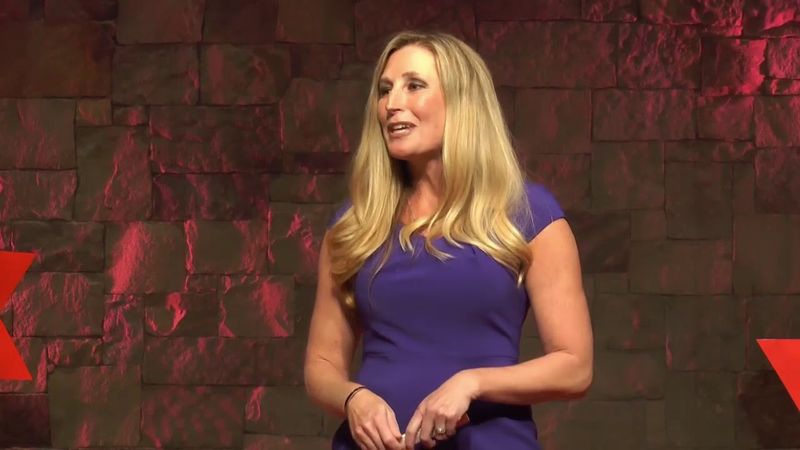Back Home After Divorce: 15 Ways to Navigate Life with Your Parents—And Actually Thrive
No one ever circles “move home” on their dream board when they say “I do.” But sometimes, after the ink dries on those divorce papers, you find yourself hauling boxes into your old room, surrounded by trophies and memories you haven’t thought about in years.
It’s easy to feel like you’re going backward, but let’s get real: this isn’t about defeat. This is about hitting the reset button, soaking up some much-needed love, and giving yourself permission to heal—one cereal bowl at a time.
There’s a weird kind of comfort in knowing you can ugly cry at the kitchen table and still get a hug from Mom. Is it awkward? Absolutely. But it’s also an underrated chance to rediscover who you are and what you want your life to look like from here on out.
1. Reframe it: You’re not starting over—you’re staging a comeback.

Cue the dramatic eye roll: moving home post-divorce feels like a plot twist you never saw coming. But here’s the secret—this moment isn’t regression, it’s a strategy session for your next act.
Instead of marinating in regret, treat this like a pit stop in the race. There’s power in pressing pause to gather your strength, rethink your priorities, and make decisions on your own terms. No shame here—just a fresh start built on wisdom collected the hard way.
When people whisper that you’re “back at square one,” just smile and remember: you’re not starting from scratch. You’re starting from experience. And that, my friend, is a powerful place to be.
2. Create a space that feels like yours (even if it’s the guest room).

Ever tried to sleep surrounded by stuffed animals and posters you outgrew a decade ago? Total identity crisis. Mark your territory—swap those dusty curtains, splurge on new bedding, and claim a corner for your latest reads or journals.
Scented candles work wonders, trust me. It’s a silent declaration that you’re here as an adult, not a visitor from the past. Every new detail is a tiny act of self-respect—like saying, ‘This is my safe zone, thank you very much.’
The goal isn’t to erase your history. It’s to create an environment that feels like possibility, not nostalgia. Even if you’re in the “guest room,” you deserve a space that reflects the woman you’re becoming.
3. Set boundaries—lovingly, but firmly.

Let’s clear something up: you’re not 16 sneaking out past curfew. You’re an adult with a history, and your parents are adjusting, too.
Sit down, pour some coffee, and set the ground rules. Maybe it’s privacy in the bathroom or not texting you at midnight if you’re out with friends. It’s not rebellion—it’s respect, for yourself and them.
It’s uncomfortable, sure. But a little discomfort now saves a ton of drama later. When your folks see you holding your own, they’ll worry less—and you’ll both breathe easier.
4. Don’t let guilt move in with you.

Raise your hand if guilt is the roommate you never wanted. Divorce is already heavy—there’s no need to pile self-blame on top of it.
Remind yourself that asking for help is a sign of courage, not weakness. Everyone needs a soft landing sometimes, and families are meant to catch each other. Letting go of guilt allows you to focus on what matters: healing and moving forward, not staying stuck.
Give yourself grace. The timeline is yours to set, and your worth isn’t on trial. You’re allowed to rest, lean on others, and rebuild at your own pace.
5. Lean into the love—but not the dependency.

There’s magic in a home-cooked meal and the comfort of your old spot at the table. Let yourself enjoy it. Cry, vent, and let those hugs work their therapy.
But don’t let comfort turn into hiding. Pay a bill, pick up groceries, and do your own laundry. Every time you show up for yourself, you chip away at the old idea that you’re just “the kid” again.
It’s a balancing act—accepting care without giving up your grown-up status. The goal is to heal without losing the independence you fought so hard for.
6. Communicate like a grown-up—even when it’s awkward.

Those awkward conversations? They’re the price of peace. You’ve changed, and so have your parents, so spell out expectations—who grocery shops, who gets the TV after 9, and yes, who does what chores.
Call out those quirks, like Dad’s early-morning news or Mom’s vacuuming marathons. Being honest is less about confrontation and more about making space for everyone’s weirdness.
You might cringe, but open chats mean fewer passive-aggressive sticky notes and more harmony. Embrace the cringe. It works wonders.
7. Embrace the silence—and what it teaches you.

Silence can feel like the enemy when you’re used to chaos. Suddenly, it’s just you and your thoughts, and maybe that’s scarier than fighting over remote controls.
Let the quiet moments work their magic. Instead of filling every gap with noise or distractions, try listening—to yourself. That inner voice has wisdom you forgot you had.
Eventually, the hush turns into clarity. In the space where drama used to live, you start to hear what you actually want next. Solitude can be your teacher, not your punishment.
8. Get a job, a side hustle, or a goal—even if it’s just “make my bed every day.”

Momentum is magic. Even a tiny goal—a job application, an online class, or just making your bed—can jumpstart your confidence.
Don’t pressure yourself to land your dream role overnight. The important thing is forward motion. Every task you tackle reminds you that you’re still capable, no matter how chaotic things feel.
Side hustles count, too! Babysit, tutor, start a blog—whatever gets you moving. Progress doesn’t care about the size of the step.
9. Make time for your friends—even if they don’t live down the hall.

Girl time is non-negotiable. After a breakup, it’s easy to isolate, but your people are still out there, ready to remind you who you are outside of marriage, parenting, or family drama.
FaceTime, group texts, or coffee dates—whatever keeps you connected to your circle. Laughter and empathy from friends can be the emotional CPR you need on rough days.
No, it’s not the same as spontaneous hangouts, but it’s your lifeline. Don’t let distance shrink your world.
10. Laugh at the weirdness. Seriously.

If you can’t laugh at the fact that your mom still asks if you brushed your teeth, what can you laugh at? Embrace the absurd. Humor has a sneaky way of making everything lighter.
When things get awkward—like sharing a bathroom with your dad again—make it a punchline, not a crisis. Laughter diffuses tension and gives you a way forward when nothing else makes sense.
Finding the funny doesn’t mean ignoring the hard stuff. It just means you give yourself permission to breathe, smile, and maybe even enjoy the madness.
11. Accept that healing might look messy before it looks magical.

Healing isn’t linear, and it’s definitely not Instagram-worthy. One morning you’re crying over a sad song, the next you’re laughing at breakfast like nothing happened.
Let yourself be a beautiful mess. There’s no gold medal for getting over heartbreak quickly or quietly. Allow the ugly-cry days, the pajama marathons, and the moments you snap at your dad for breathing too loud.
You’re not failing—you’re growing. Recovery is a wild ride, and every high and low means you’re still in the game.
12. Relearn independence within shared walls.

It’s a mind-bender: finding your independence while living under your parents’ roof. But you can do it, one small act at a time.
Manage your own schedule. Pick a night to cook dinner for yourself. Take yourself out to a movie or coffee, just because you can. Every solo adventure is proof that you’re still your own person.
Independence isn’t about where you live—it’s about how you carry yourself, choices and all. Shared walls don’t mean a shared identity.
13. Use this time to reflect—not rewind.

If you’re tempted to overthink every past argument or Facebook-stalk your ex, give yourself a timeout. This window is for reflection, not rumination.
Ask yourself: who am I now? What do I want that’s new or different? Use journaling, meditation, or long showers to process—not obsess.
Forward-facing reflection is fuel. Your story isn’t about who you were—it’s about who you’re becoming. Let the past teach you, not trap you.
14. Give yourself credit—loudly.

Leaving a marriage takes guts. Moving home takes even more. Celebrate every act of bravery—big or small.
Say it out loud: ‘I did something hard, and I’m still standing.’ Remind yourself you’re not weak for leaving, or for needing help. That’s strength, plain and simple.
When you own your progress, you show yourself and everyone else: this season is about courage, not defeat. Don’t be shy about your wins. Let them shine.
15. Trust that this is temporary… but transformative.

Packing your bags for home isn’t the end—it’s a new chapter that won’t last forever. Feelings of awkwardness are real, but growth is happening under the surface.
While you may not know when you’ll get your own place again, remind yourself each day: you’re building resilience, clarity, and a sense of direction you didn’t have before.
One day, you’ll look back and realize this season was a catalyst. You’re moving forward, even if the scenery hasn’t changed yet.







